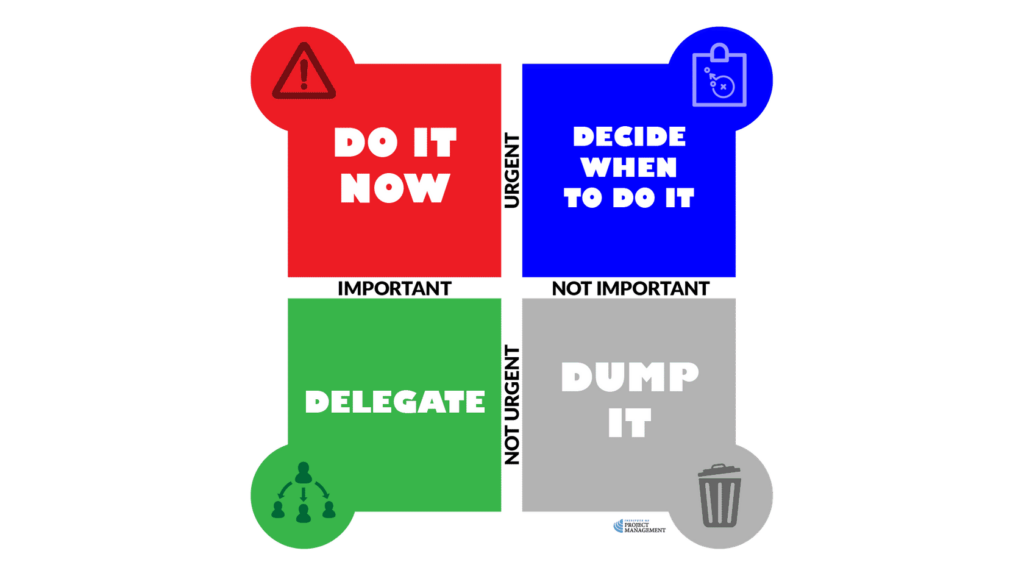10.8 Leading self
The perils of ego
The more ‘important‘ your project is, the more at risk you are of getting an inflated ego – but does this matter?
As we rise in the ranks, we acquire more power.
And with that, people are more likely to want to please us by listening more attentively, agreeing more, and laughing at our jokes.
All of these tickle the ego. And when the ego is tickled, it grows.
Problem #1
Because our ego craves positive attention, it can make us susceptible to manipulation – it makes us predictable.
When people know this, they can play to our ego.
When we’re a victim of our own need to be seen as great, we end up being led into making decisions that may be detrimental to ourselves, our people, our projects, and our organization.
Problem #2
An inflated ego also corrupts our behavior.
When we believe we’re the sole architects of our success, we tend to be ruder, more selfish, and more likely to interrupt others.
This is especially true in the face of setbacks and criticism.
In this way, an inflated ego prevents us from learning from our mistakes and creates a defensive wall that makes it difficult to appreciate the rich lessons we glean from failure.
Problem #3
Finally, an inflated ego narrows our vision.
The ego always looks for information that confirms what it wants to believe.
Basically, a big ego makes us have a strong confirmation bias.
Because of this, we lose perspective and end up in a leadership bubble where we only see and hear what we want.
As a result, we lose touch with the people we lead, the culture we are a part of, and ultimately our clients and stakeholders.
Breaking free of an overly protective or inflated ego and avoiding the leadership bubble is an important and challenging job — it requires selflessness, reflection, and courage
Here are a few tips to get you started:
- Consider the perks and privileges you are being offered in your role. Some of them enable you to do your job effectively. That’s great. But some of them are simply perks to promote your status and power and, ultimately, ego. Consider which of your privileges you can let go of.
- Support, develop, and work with people who won’t feed your ego. Hire smart people with the confidence to speak up – allow them to manage up to you!
- Humility and gratitude are cornerstones of selflessness. Make a habit of taking a moment at the end of each day to reflect on all the people who were part of making you successful on that day. This helps you develop a natural sense of humility by seeing how you are not the only cause of your success. And end the reflection by actively sending a message of gratitude to those people.
The inflated ego that comes with success — the bigger salary, the nicer office, the easy laughs — often makes us feel as if we’ve found the eternal answer to being a leader.
But the reality is, we haven’t.
Leadership is about people, and people change every day — if we believe we’ve found the universal key to leading people, we’ve just lost it.
If we let our ego determine what we see, what we hear, and what we believe, we’ve let our past success damage our future potential.
Source: Harvard Business Review
Changing your mind
A good test of whether your ego is in check (or not), is to ask when was the last time you changed your mind.
One of the more concerning dynamics of the “everything is on the record all the time” world is that changing your mind – especially in a highly public way – has somehow become contemptible.
If a politician or business leader evolves in their understanding of a topic, we call them a flip-flopper; if someone alters their once-fierce perspective in light of newfound information, we call them a hypocrite or a traitor.
However, one of the most crucial roles of the leader is to be a learner, and it is impossible to learn without being shaped and changed in some way.
To be shaped, you have to open yourself to the idea that you don’t know everything and that your present ideas could be incorrect, or at least incomplete.
The fear of being wrong prevents many people from seeking the truth, in any sphere.
We equate our ideas and positions with our worth as human beings, and when our ideas are challenged, it feels like a personal attack.
- Are you allowing your ideas to evolve over time?
- Are you willing to adapt as your thoughts are proven incomplete or inadequate?
Don’t allow your ego to rob you of your contribution.
Stay flexible, stay curious, and be intellectually honest – these are the traits of an effective leader.
Source: Accidental Creative
Procrastination
Another way we can be our own worst enemy is by embracing the inertia that overcomes us when we procrastinate.
The psychological inability to get started or complete a task can be caused by many things, some of which may be familiar to you!
- Unattainable perfectionism
- Fear of the unknown
- Lack of motivation
- Task uncertainty
- Inability to focus
- Work overload
- Lack of confidence
By this point, you should recognize that project management itself anticipates and avoids procrastination.
By breaking down work into manageable tasks, each with its own context, detail, priority, and deadline, we are indirectly responding to many of those root causes of procrastination.
Another simple schedule prioritization tool is the Eisenhower matrix.

What is important is seldom urgent, and what is urgent is seldom important.
Dwight D. Eisenhower
This framework challenges you to consider tasks by their relative importance and urgency when deciding which tasks are most worthy of your attention as a leader

Important and urgent
Nike has been saying it for years – just do it!
Once identified, don’t procrastinate on these tasks 🙂
Important, but not urgent
Although all tasks can be theoretically delegated, these are the ones you should delegate first.
Remember, though, that successful delegation depends upon the skill and will of the person receiving the task, as well as the absence of hills you create for them (Unit 9)!
Urgent, but unimportant
If tasks are urgent but unimportant, how urgent are they really?
Like importance, urgency is relative – what is urgent to you may be a low priority for me.
When deciding when to do it, you should consult with relevant stakeholders to understand just how ‘urgent’ the task is and schedule it appropriately in the context of the other ‘urgent’ tasks.
Not important or urgent
If a task is neither important nor urgent you should remove it from your to-do list.
As with our stakehodler and risk management approaches, however, you should continue to monitor these tasks (with your stakeholders) to see if their importance or urgency changes!
Although this method is somewhat reductive and reactive – best applied in times of crisis – it remains a useful little procrastination buster!
